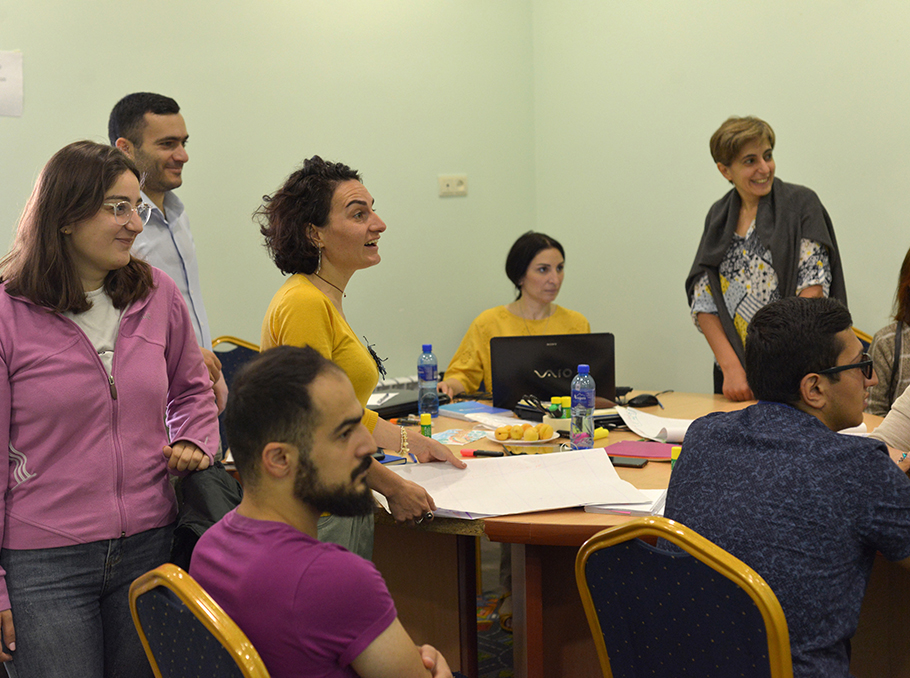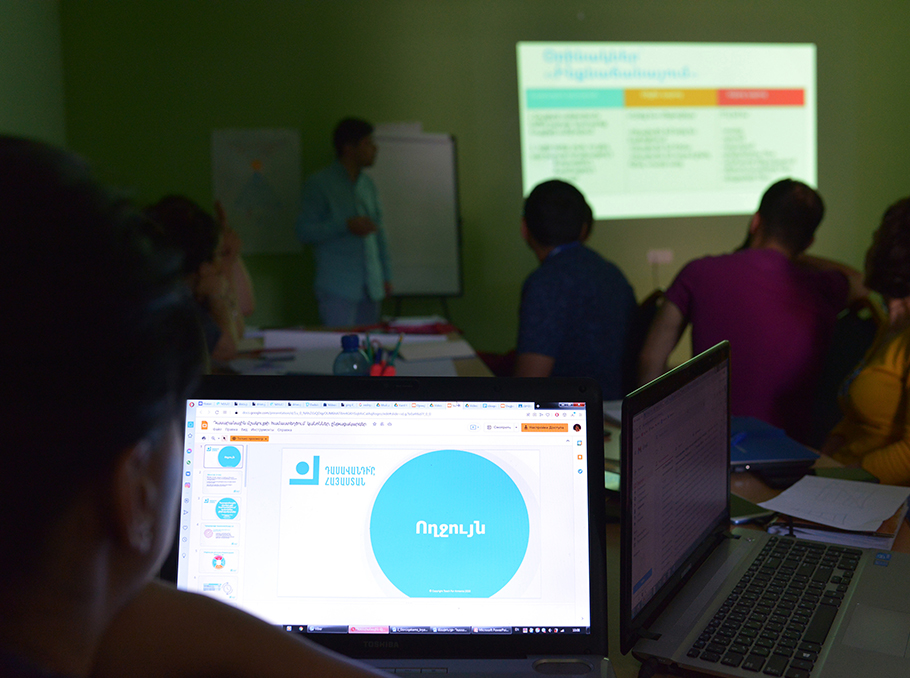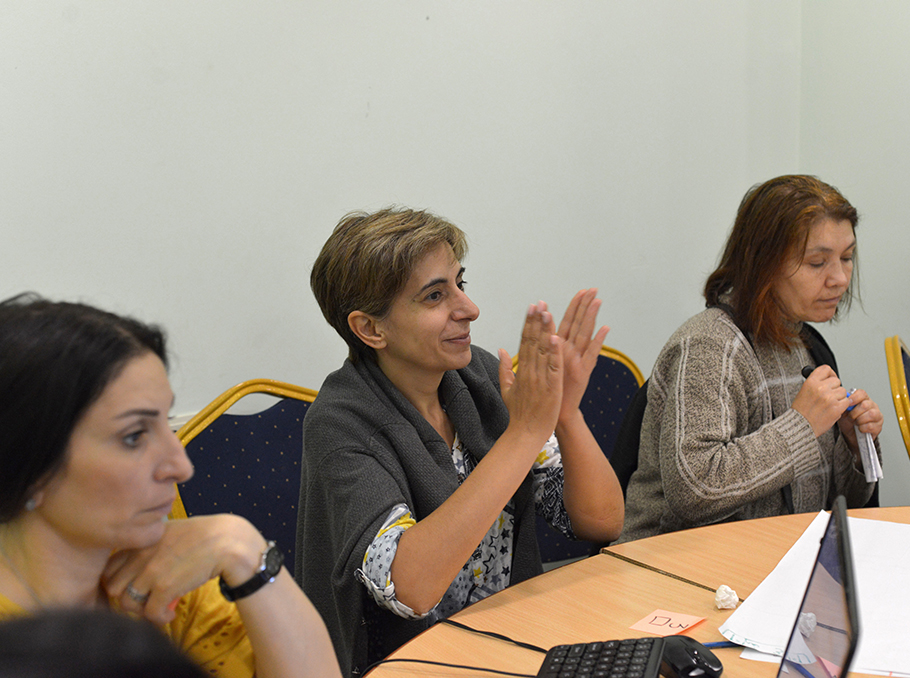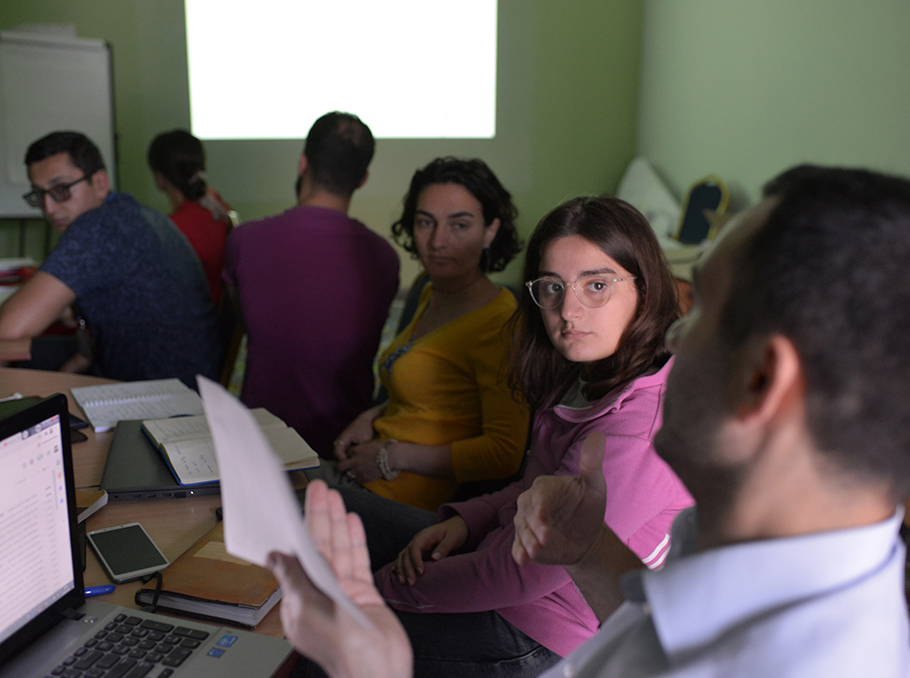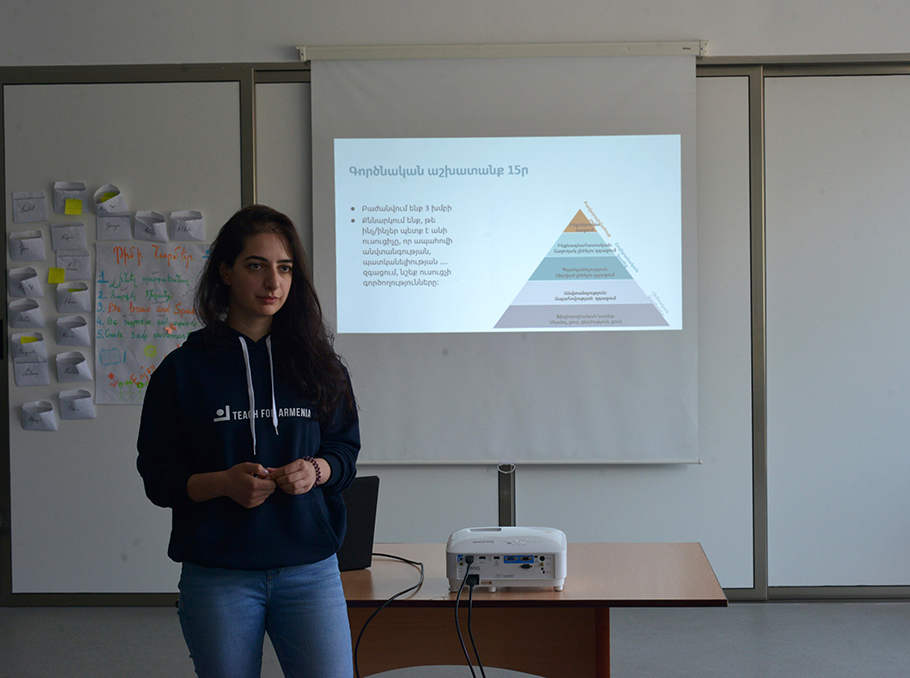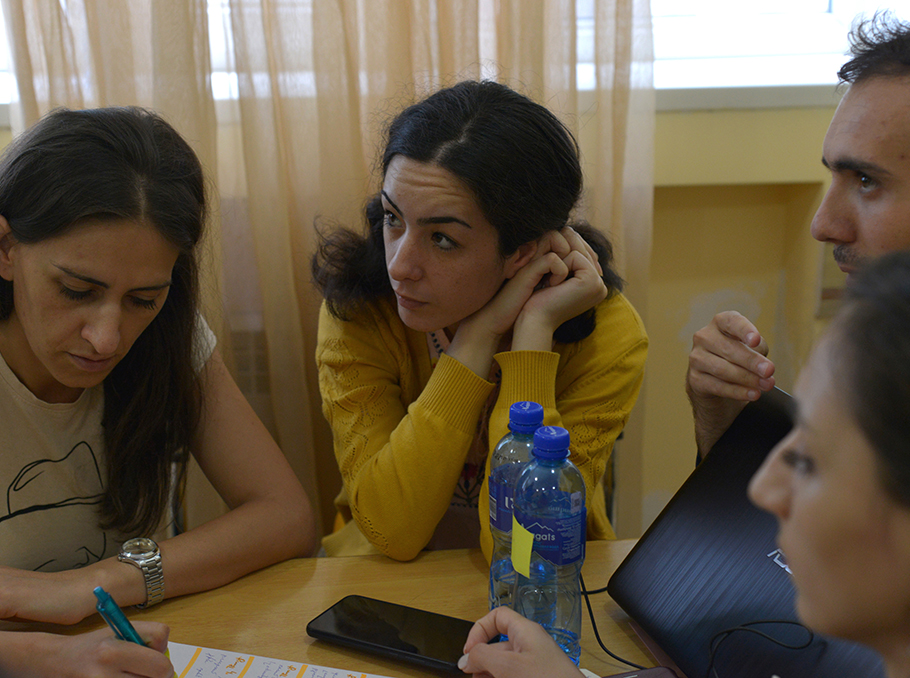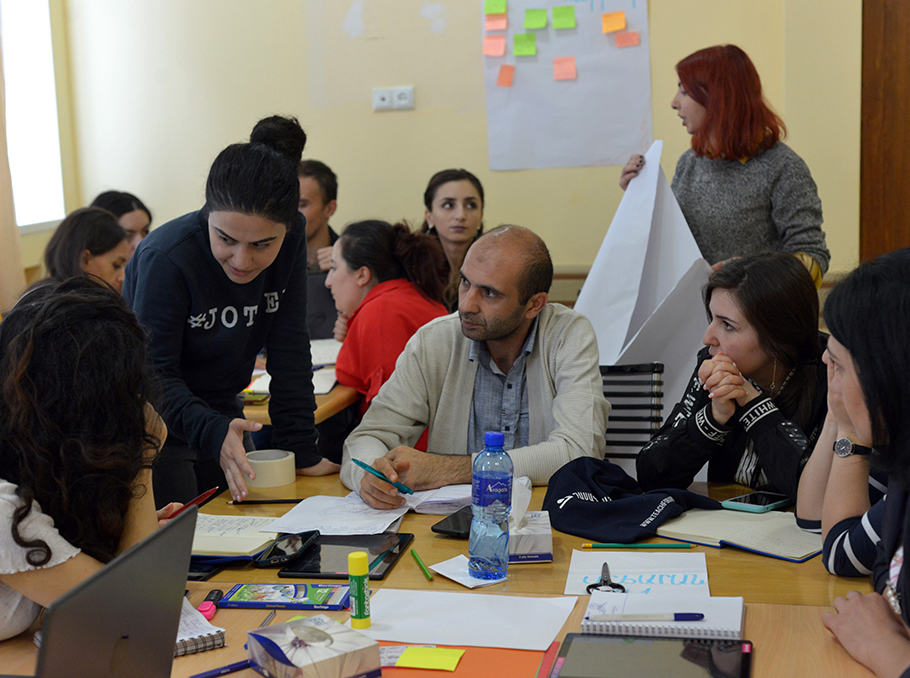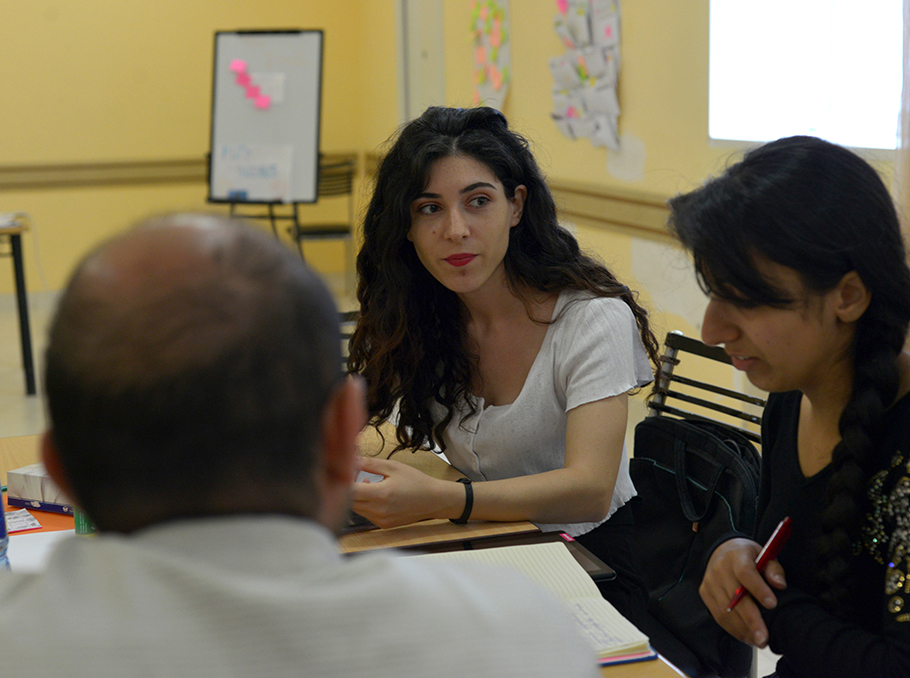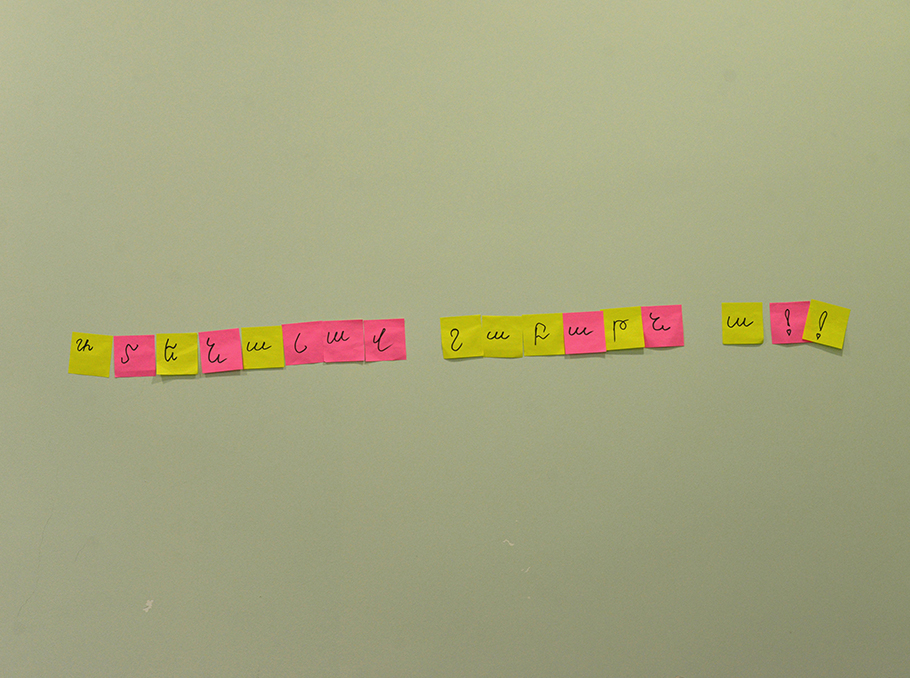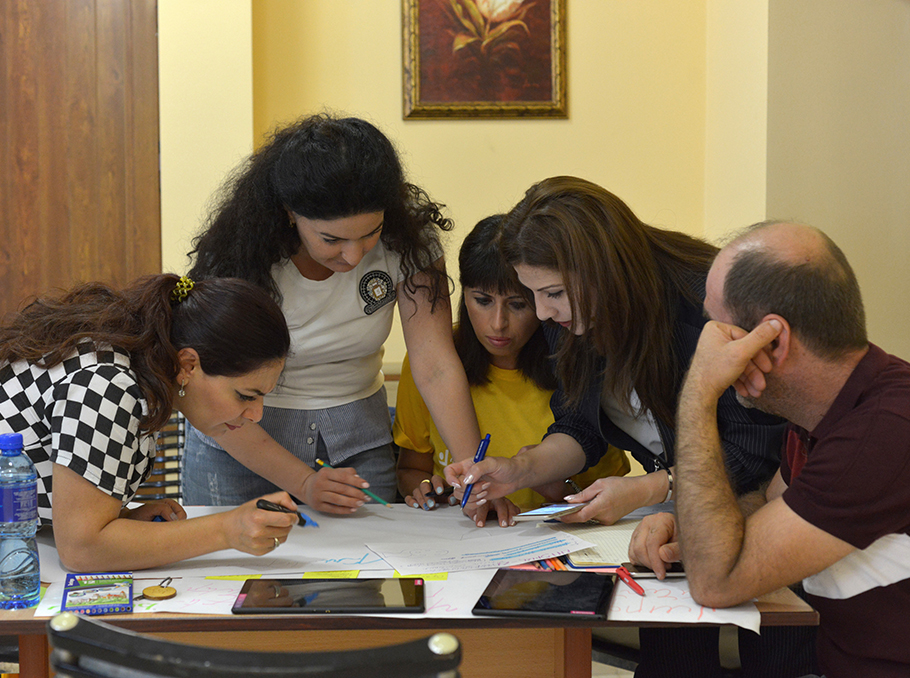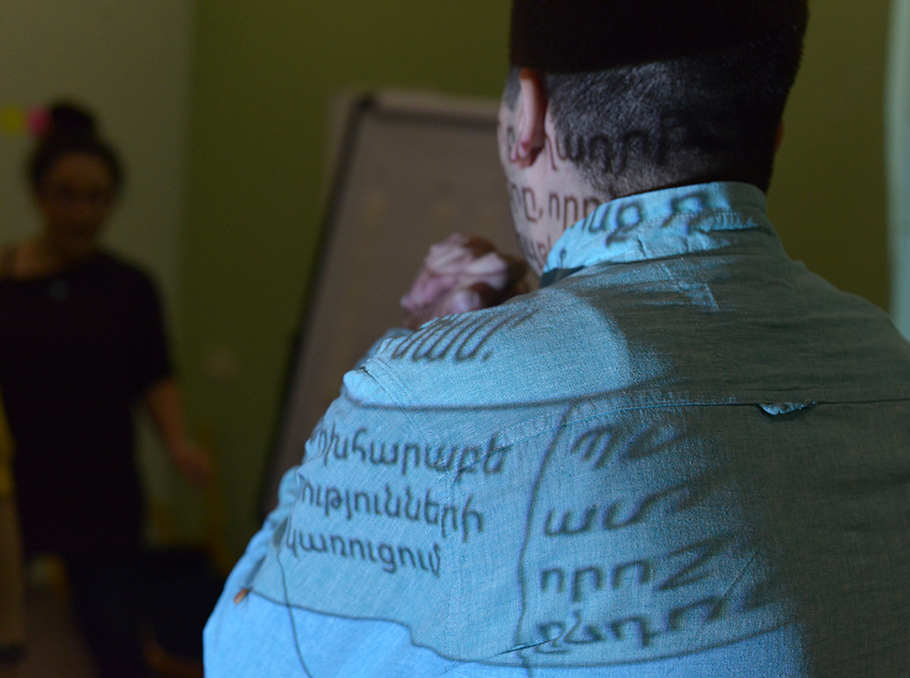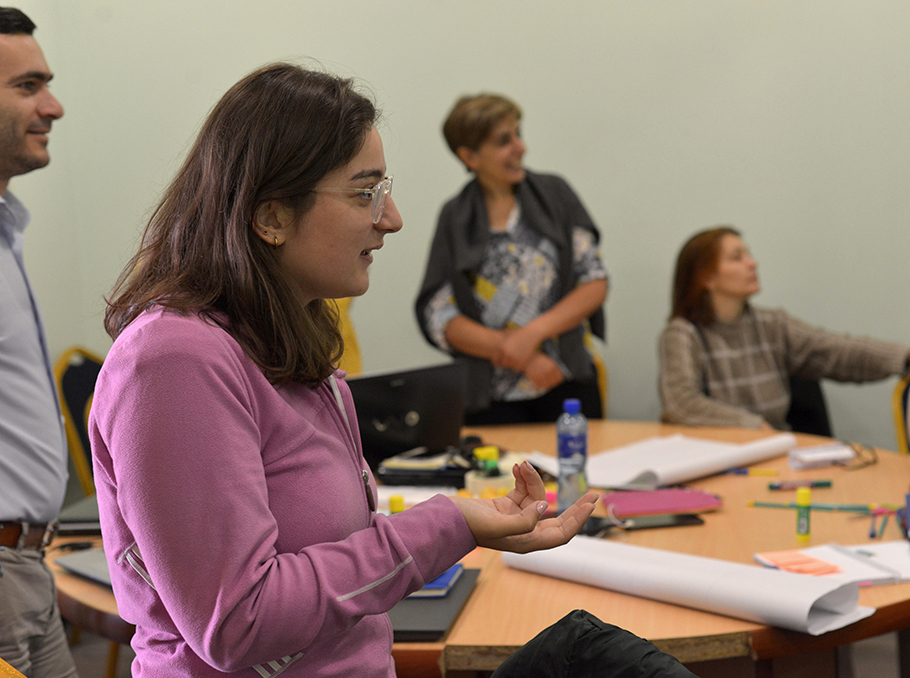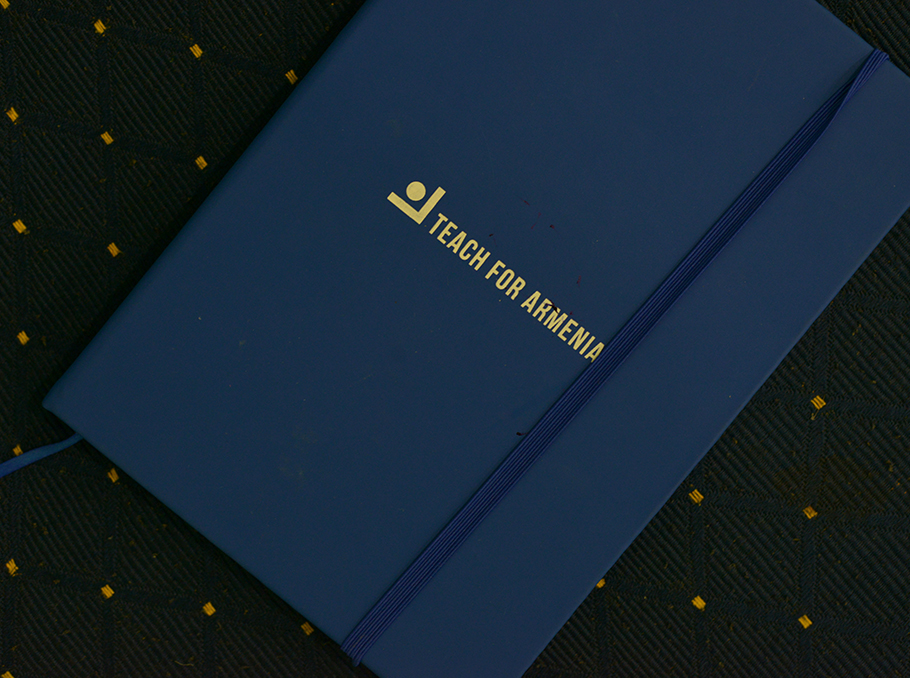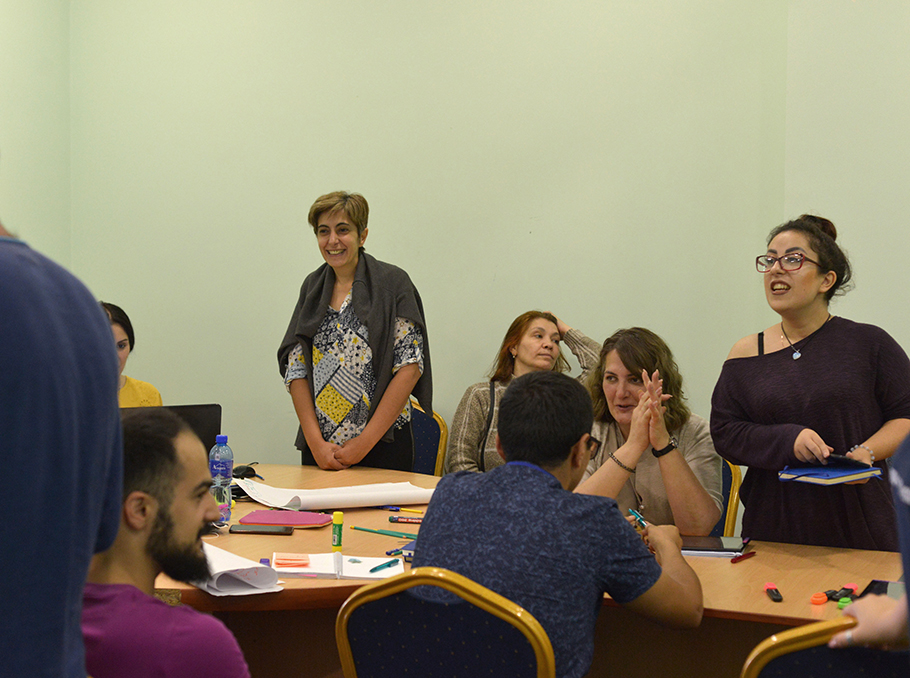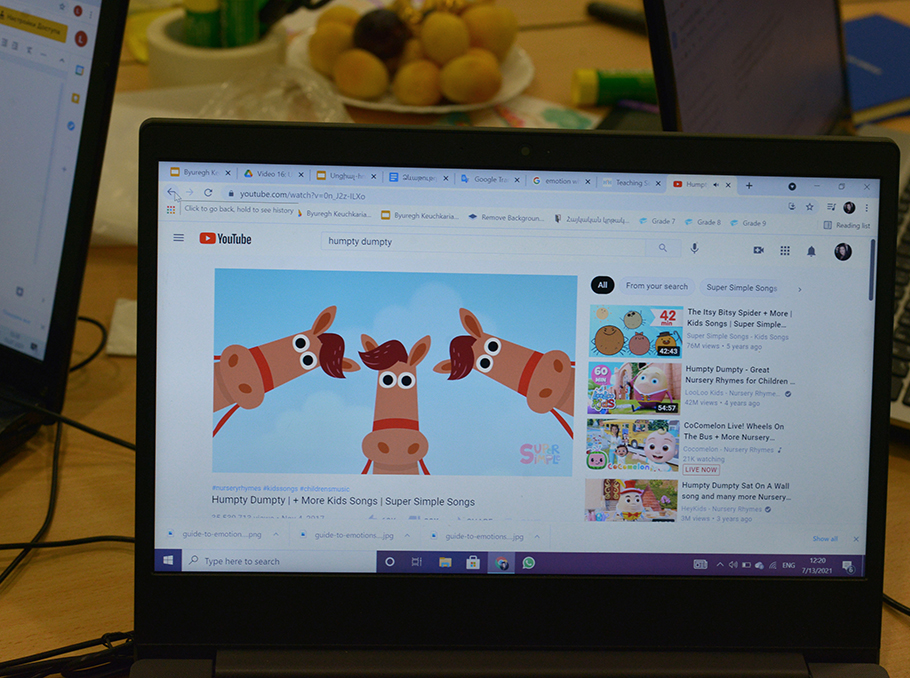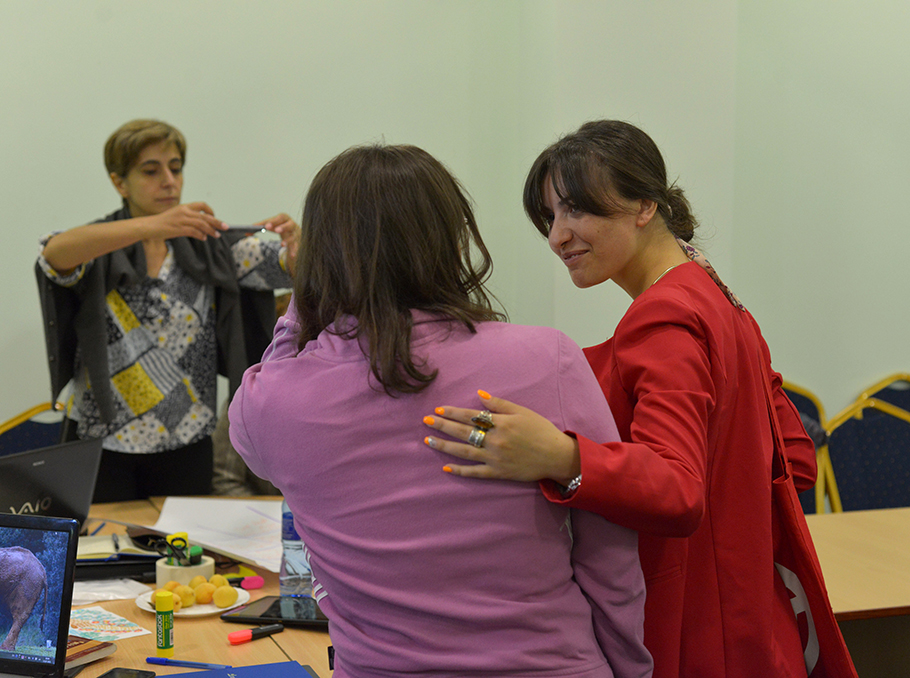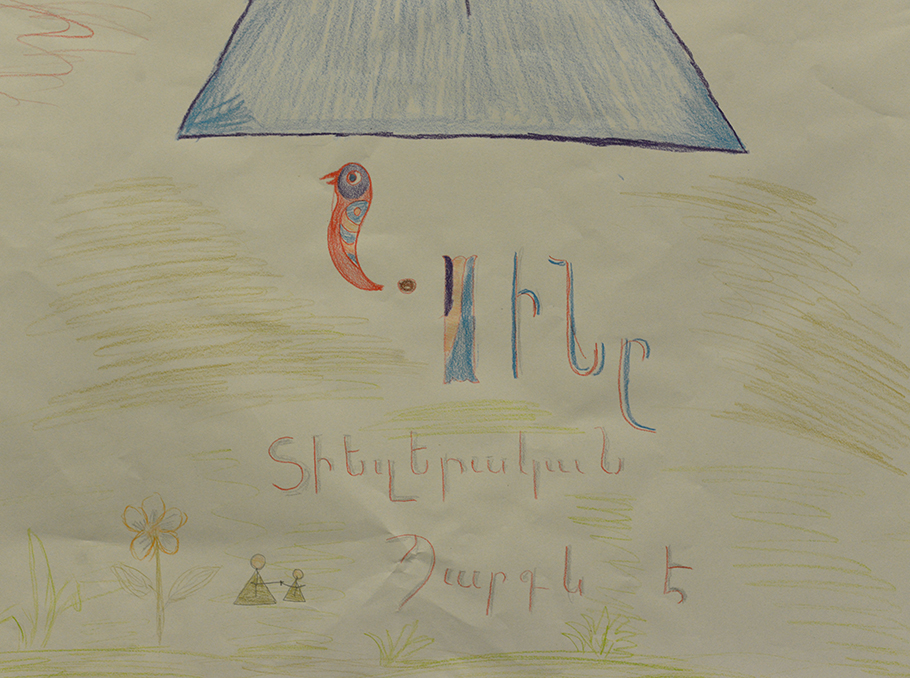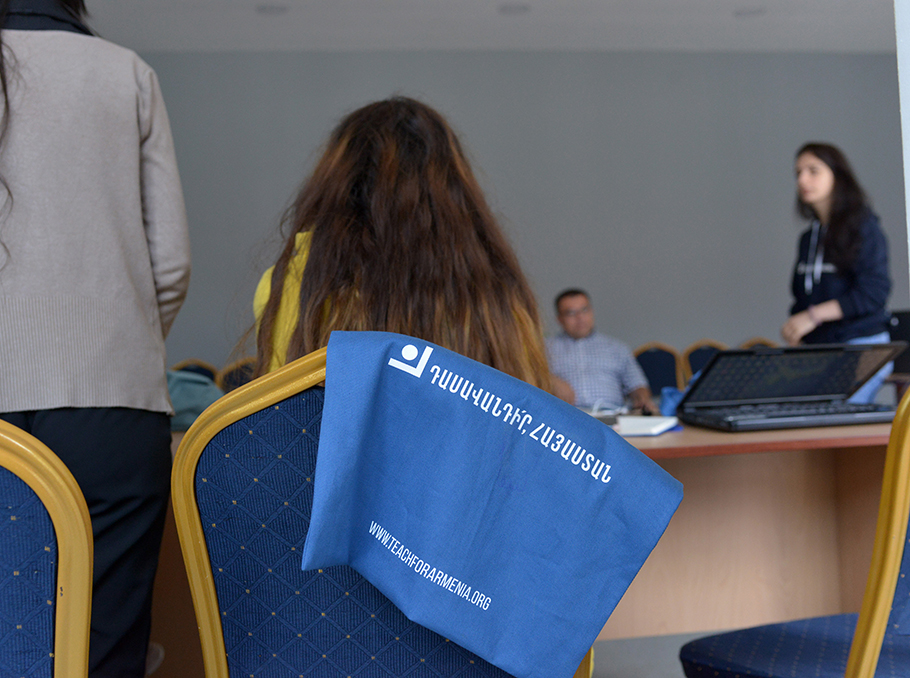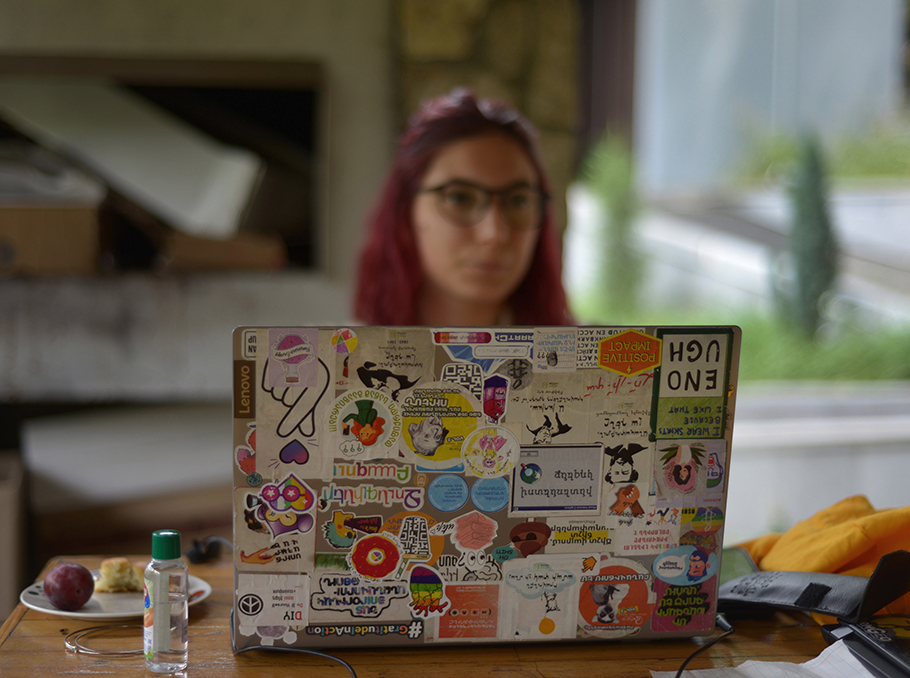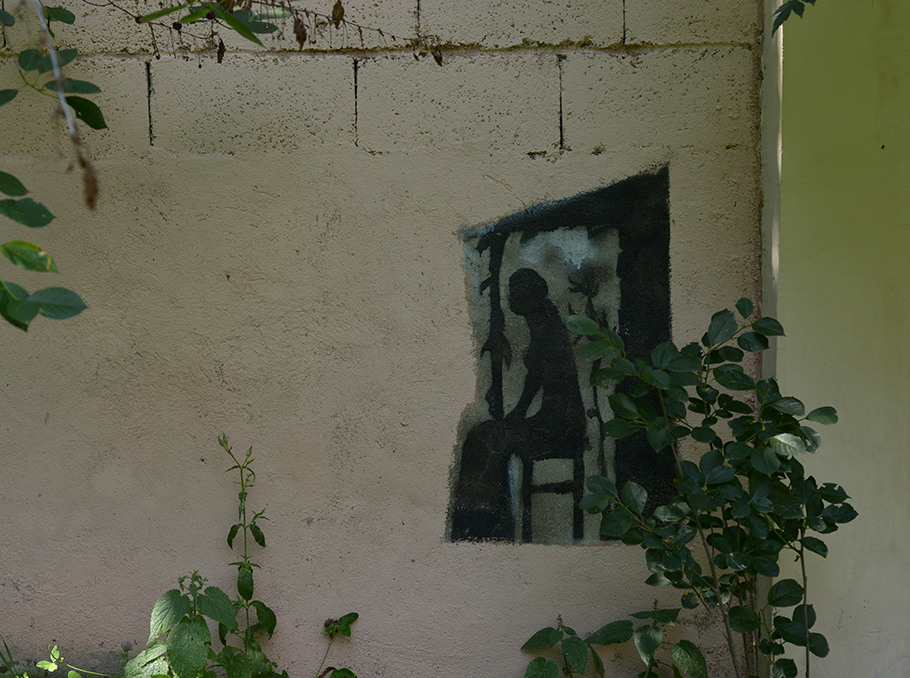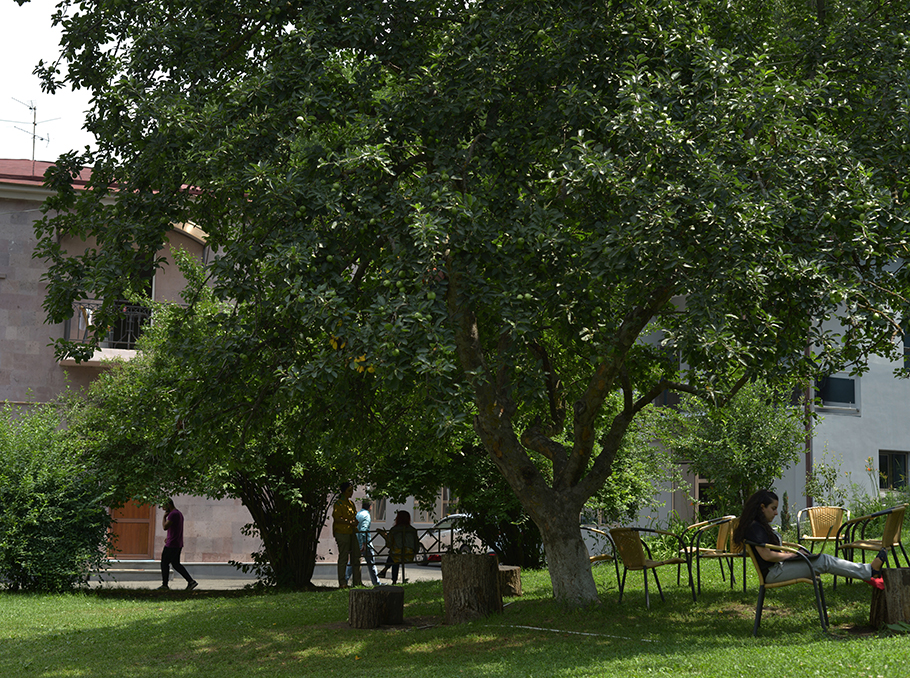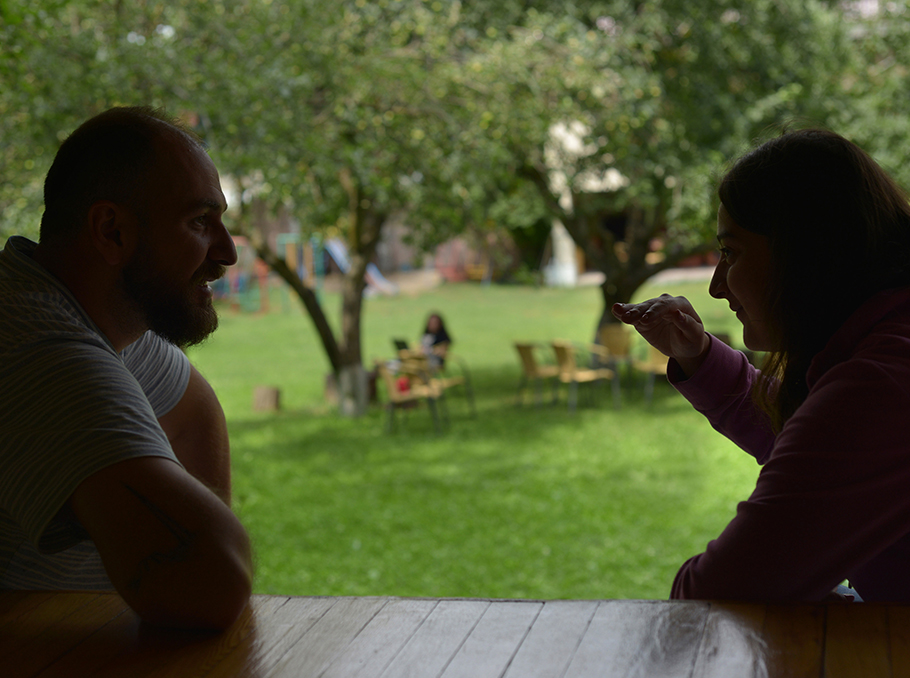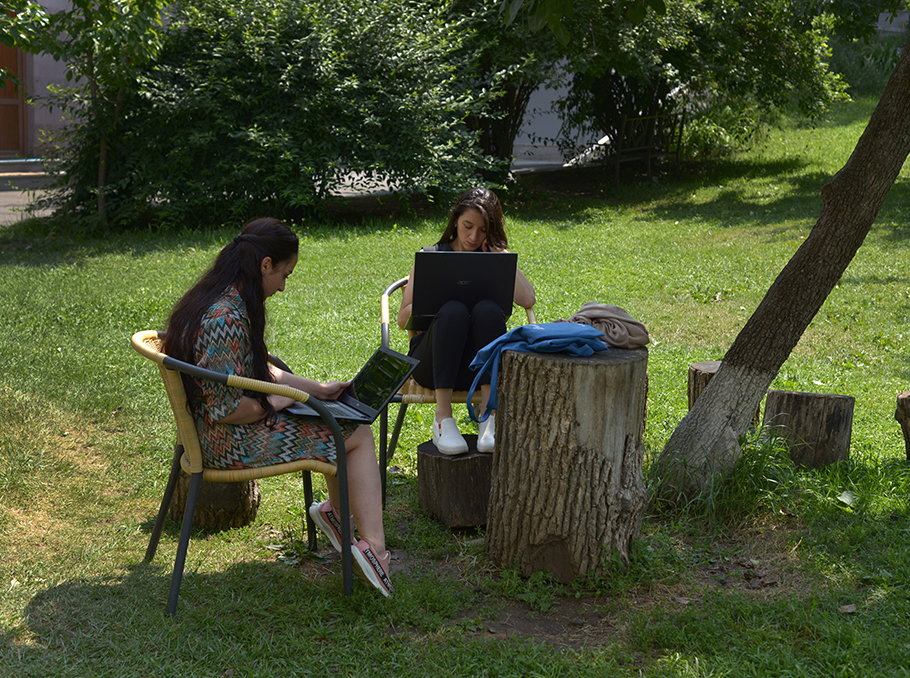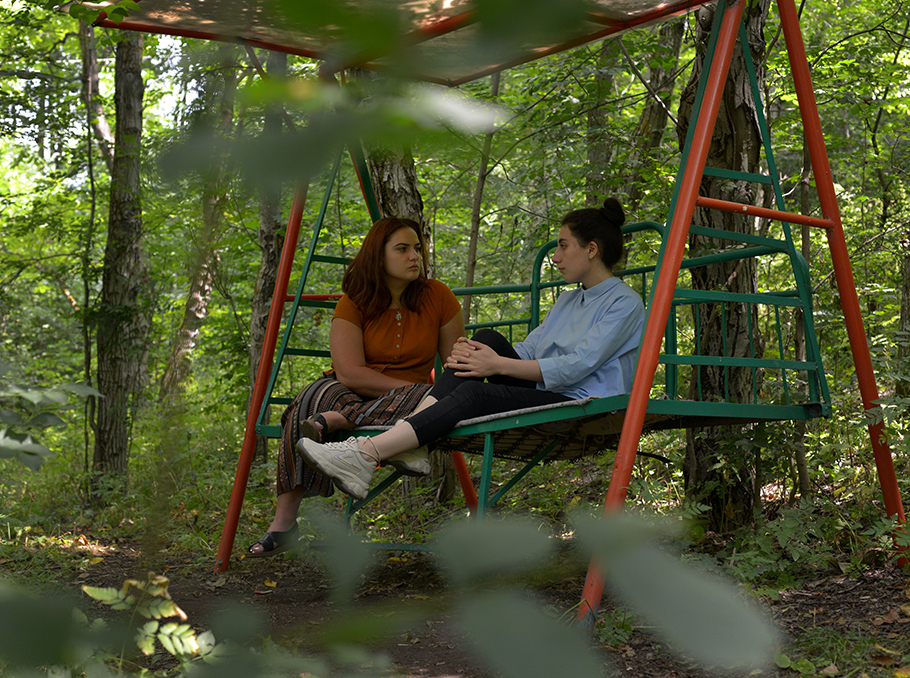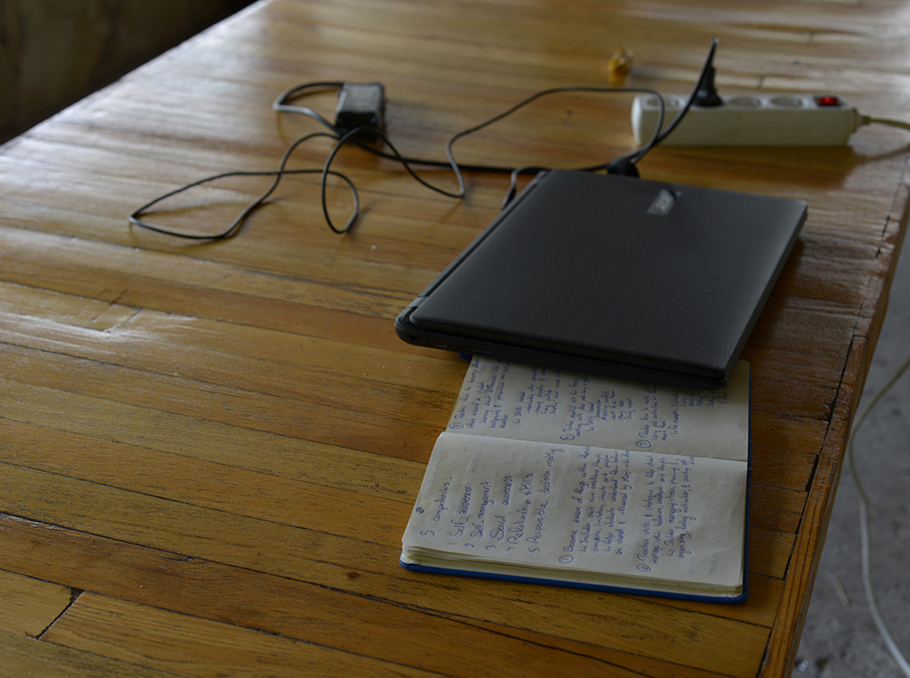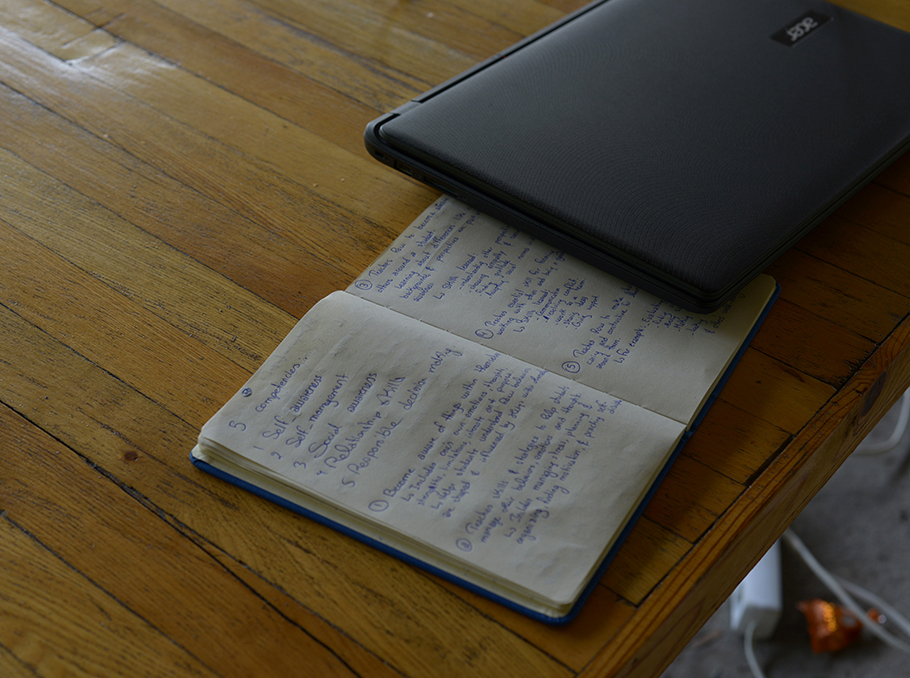This year, 1,575 people applied to the Teach For Armenia program, expressing a desire to go to the villages of Armenia and Artsakh, where there is a shortage of teachers and children are deprived of a full education.
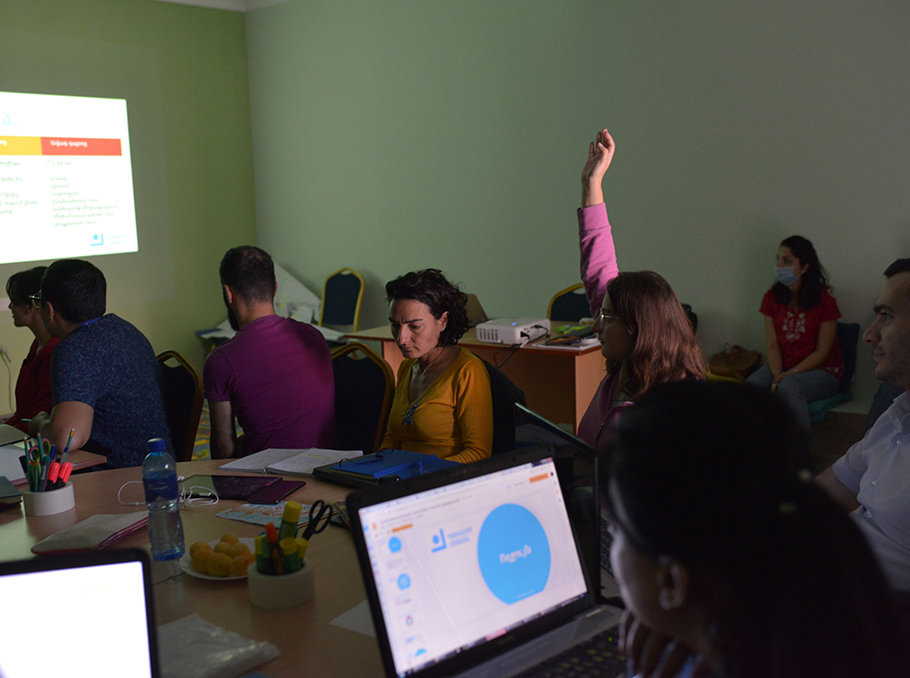
Photo: Vaghinak Ghazaryan/Mediamax
After several rounds of selection, 123 applicants reached the Teacher Leadership Academy, which is held in Dilijan and Stepanavan this year. After 8 weeks of training, they will be sent to various schools of Armenia and Artsakh to teach in September. This year, Teach For Armenia is also expanding into the Syunik region for the first time.
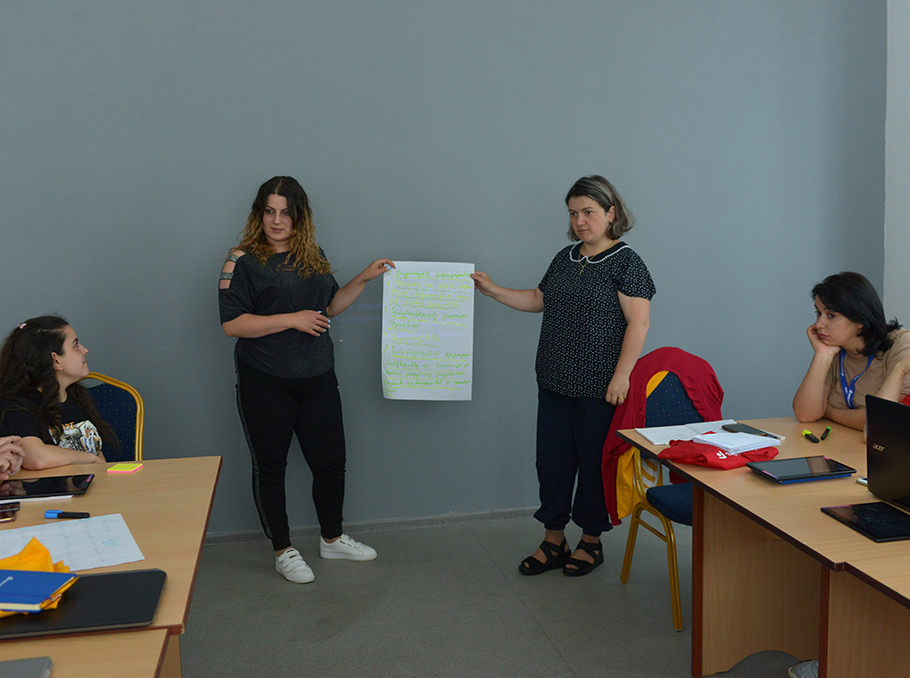
Photo: Vaghinak Ghazaryan/Mediamax
“The first week is entirely devoted to Change-Based Learning. It is Teach For Armenia’s model - a form of project-based education. By implementing a project, children learn and develop their skills and academic knowledge. Within the framework of a specific subject, students study their community, think about what changes they want to see, visualize that change, and develop a project to implement.
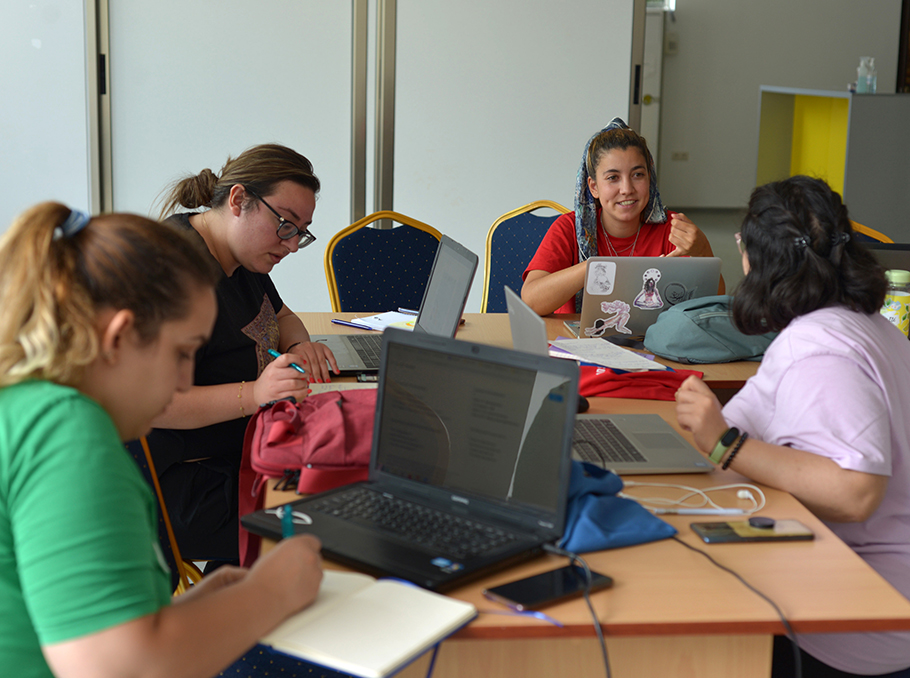
Photo: Vaghinak Ghazaryan/Mediamax
The teacher’s task is to guide the children towards finding a solution and focusing on the student’s leadership skills. The second week is dedicated to the formation of a classroom culture, social-emotional, active learning, critical thinking, and assessment tools,” says Zina Ghukasyan, Head of Curriculum Devolvement and Implementation at Teach For Armenia.
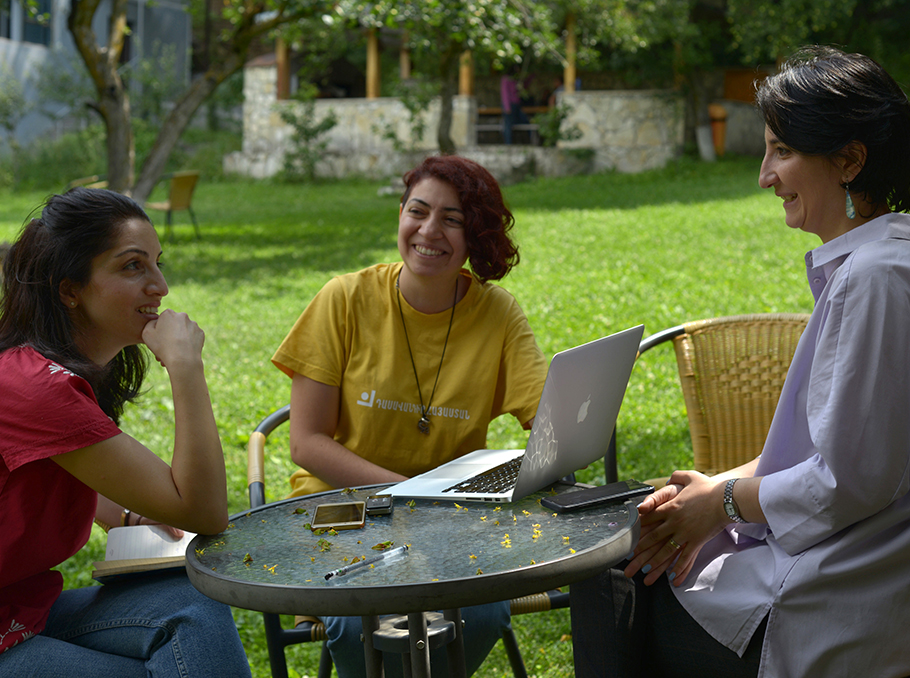 Zina Ghukasyan (in the middle)
Zina Ghukasyan (in the middle)Photo: Vaghinak Ghazaryan/Mediamax
The third and last week of the Teacher Leadership Academy is the Student Leadership Camp, which is held online due to the pandemic. Students from the program partner schools attend the camp. Teachers are given the opportunity to test their gained skills and knowledge during the training in classes made of 4-5 people.
At the Academy, teachers are “armed” with the necessary knowledge needed for entering the classroom, but the work continues throughout the 2-year journey. Individual meetings, classes, trainings, and professional development courses are held if necessary. But the teacher’s independent learning is an important factor, and those who don’t have a pedagogical qualification are permitted to simultaneously receive their Master’s Degree.
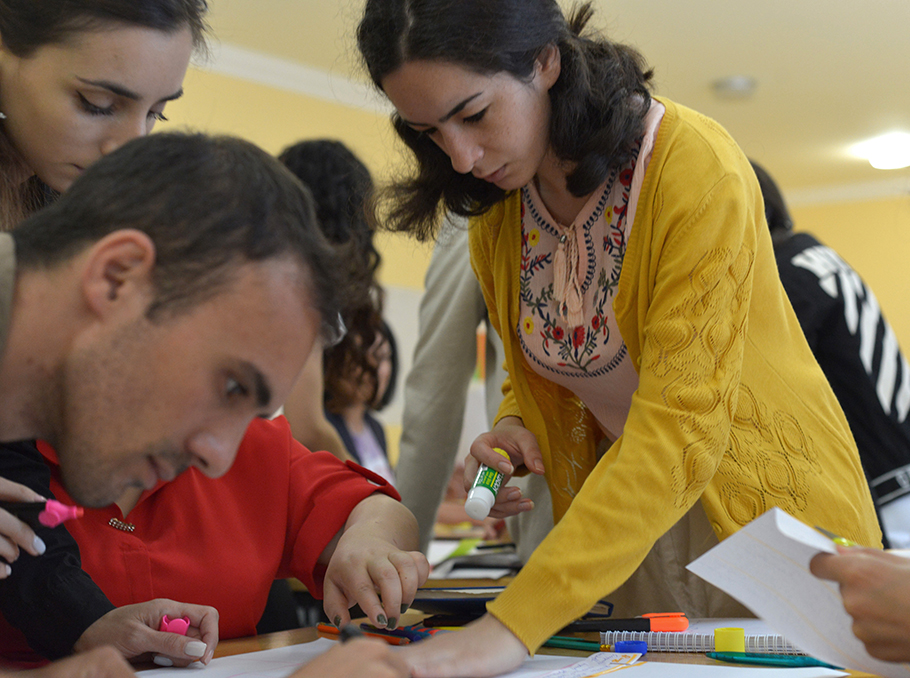
Photo: Vaghinak Ghazaryan/Mediamax
For the second year in a row, certified teachers can also join the program; they will continue working in their communities, using new methods.
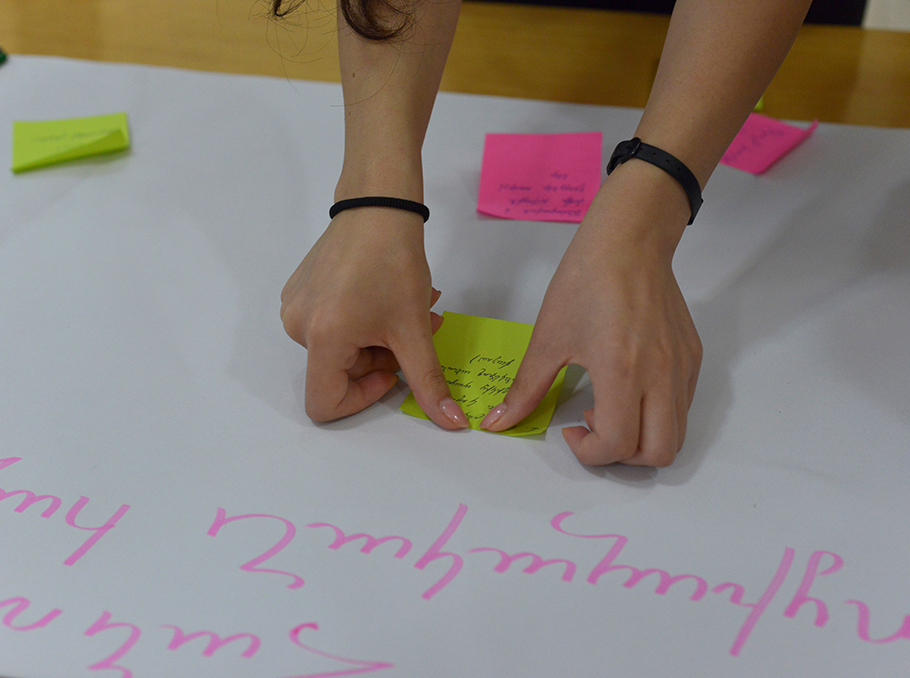
Photo: Vaghinak Ghazaryan/Mediamax
“We are ready to work with those teachers who want to go through Teach For Armenia’s training and focus on student leadership. In addition to working at school, they also carry out the tasks included in our two year Leadership Development Program: extracurricular activities, community development programs, and Change-Based Learning. “We have the same expectations from them as all the participants of our program. We provide them with the same support including the financial component,” says Margarita Khamoyan, Teach For Armenia’s Leadership Development Manager in Dilijan.
Byuregh Keoshkarian: “The country can’t move forward if all of the potential is in one place”.
A few days ago, Byuregh was asked if she would like to teach in Artsakh. “Of course,” she answered. Byuregh Keoshkarian came to Armenia following the example of her Lebanese-Armenian friend who teaches physical education in Artsakh.
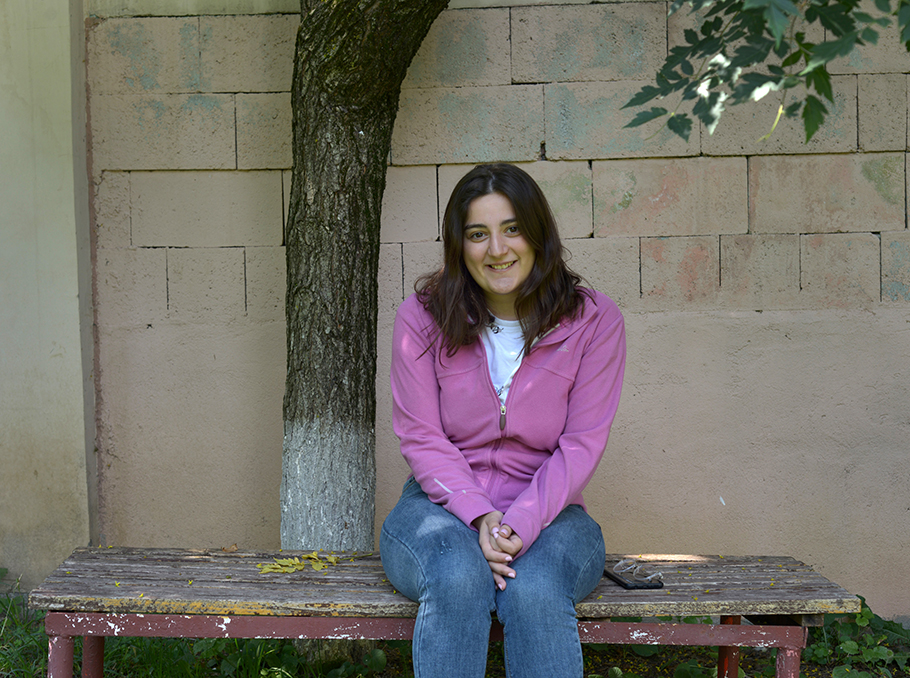 Byuregh Keoshkarian
Byuregh KeoshkarianPhoto: Vaghinak Ghazaryan/Mediamax
“We, in the Diaspora, want to help Armenia somehow. Now the best way is to teach the students. All the resources are concentrated in Yerevan, and the students in villages don’t have the same opportunity to progress. The country can’t move forward if all of the potential is in one place.”
The 21-year-old biochemist moved to Armenia alone. She says the only issue is being away from his family, but that she will soon get used to it.
“Whatever step I want to take, my parents are the first to encourage me. When I said I was going to apply to Teach For Armenia, they were excited that I would come and change something here.”
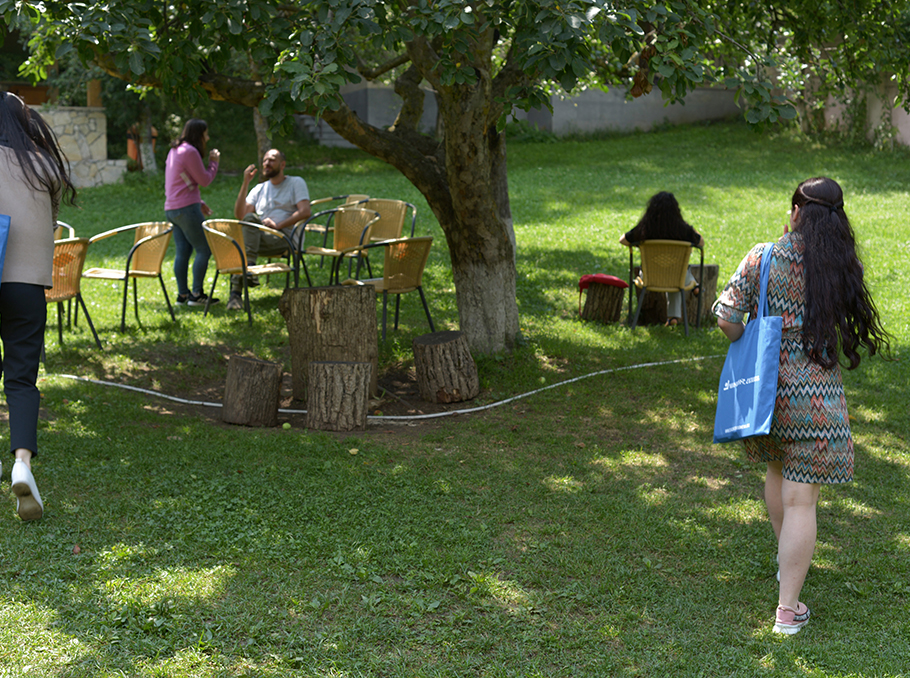
Photo: Vaghinak Ghazaryan/Mediamax
Byuregh taught chemistry in one of the Armenian colleges in Lebanon. She is not familiar with Armenia’s educational system and considers it her main challenge. She still doesn’t know where she will be on September 1st, but she is already getting ready for her first meeting with the students.
“I imagine going to the community and everyone will be staring at me because a new person has arrived, and they will start asking questions like, “Who are you? Why did you come here?” When they see me on the first day of school they will probably think I am not a teacher but a student.
Yefima Gevorgyan: “The generation has other demands, but our educational system can’t meet them”
Yefima has been a physics teacher for more than 20 years, teaching at the “Photon” college in Gyumri. But, she says the years do not matter, what is important is the desire to learn.
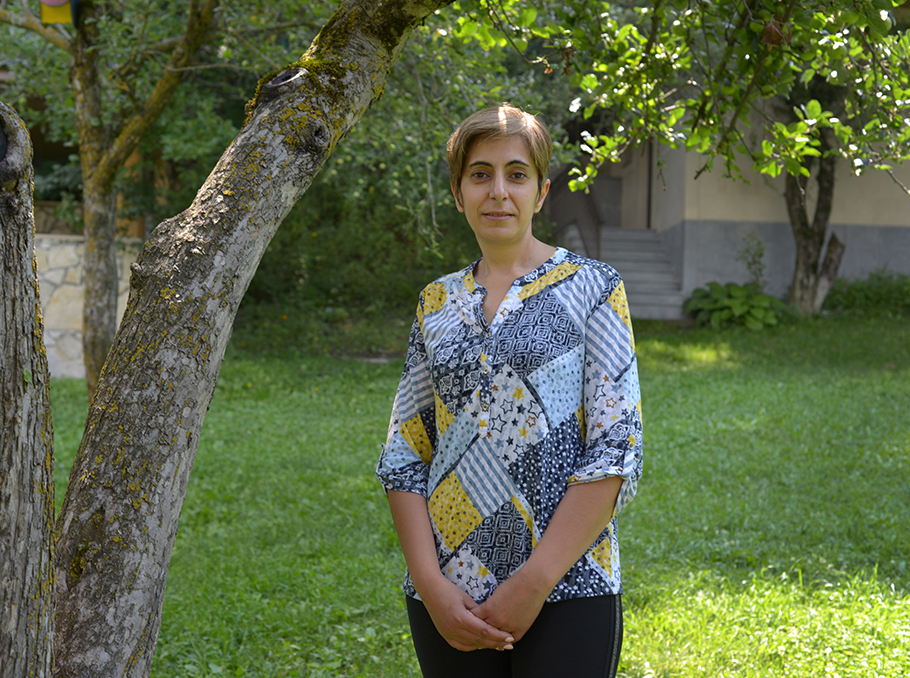 Yefima Gevorgyan
Yefima GevorgyanPhoto: Vaghinak Ghazaryan/Mediamax
“The most important thing is your approach. Do you care, do you want to work, have you turned into a swamp, or are you trying to grow a water lily in a swamp?”
Yefima mentions that the interest in the subject of science has decreased a lot. She tries to make students love physics through various clubs and cooperation with other schools.
“The generation has changed, it has other demands, but our educational system can’t meet them. Many things need to change in terms of methodology. Today, there is a gap between knowledge and its use. Now, we offer excellent, but heavy knowledge in school. Does today’s generation need the heavy physics we teach them? Experience shows that they don’t. We have an excellent generation, but we must change our approaches.”
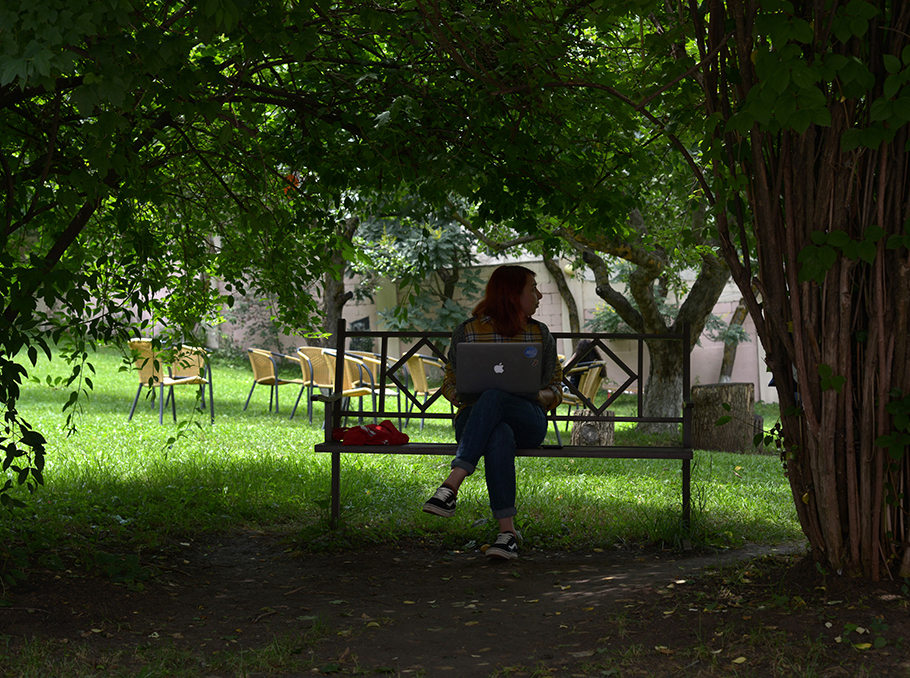
Photo: Vaghinak Ghazaryan/Mediamax
Yefima is ready for changes, but she needs supporters. She has attended many programs and trainings, but did not like them. Now, she is participating in Teach For Armenia’s Teacher Leadership Academy, and it’s like a breath of fresh air.
“We studied the experience of a project program here, how to connect knowledge with the solution of everyday problems. We performed small experiments with children, played games to show them how their knowledge is applicable, but I never thought that I could manage such a big project.”
This week our topic is the world of emotions. The most difficult thing in school is not teaching, but understanding the child. Not every pedagogue can, or has the tools, to understand, evaluate, and use the child’s emotions during the lesson. Here, we are provided with already developed, systematic, ready-made knowledge, and all that remains is to learn.”
Michael Zohrabian: “At this stage, they need us more in Syunik or Artsakh”
Michael Zohrabian came to Armenia two years ago from Spain with his Spanish girlfriend, Paloma. They were implementing programs together in the communities of Syunik. Michael had adventure tourism and construction of tourist trails while Paloma was teaching English.
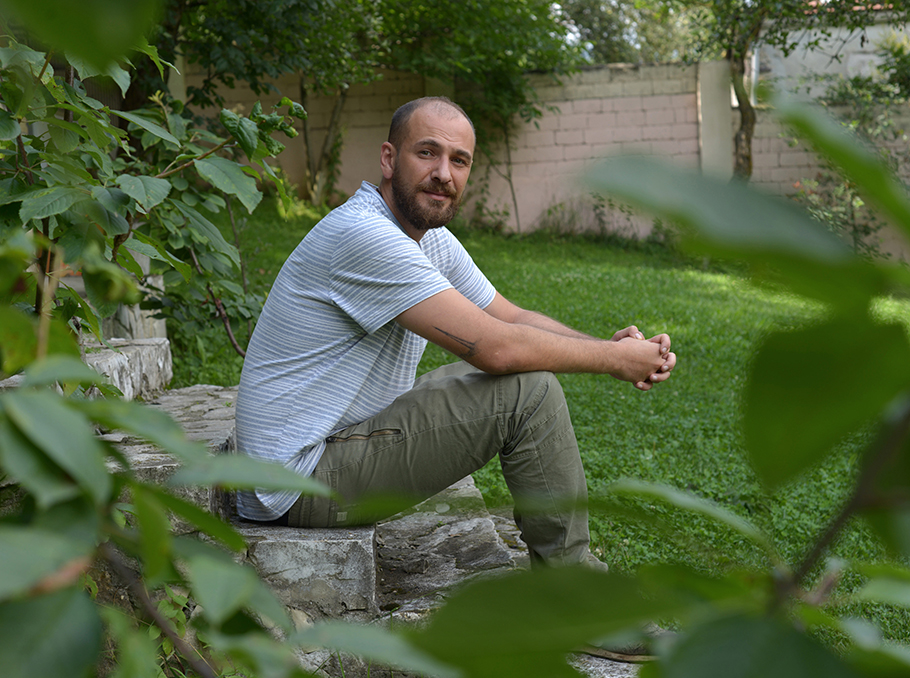 Michael Zohrabian
Michael Zohrabian Photo: Vaghinak Ghazaryan/Mediamax
A little disappointed with the lack of teamwork, they began to doubt their strength. When they had the opportunity to join Teach For Armenia’s program, they got excited, thinking that maybe this way they could be more useful.
“At this stage, it is very important for me to teach in Artsakh or Syunik, because they need us more there. The war might have seriously affected the children’s psychology and I think it is important to have someone from the outside who doesn’t allow the thoughts of the war to take over, but also says, well, we have a war and we must defend ourselves, but we must not forget that the world continues to turn. My experience has shown that we really need people who will come from abroad and give children a more global experience,” says Michael.
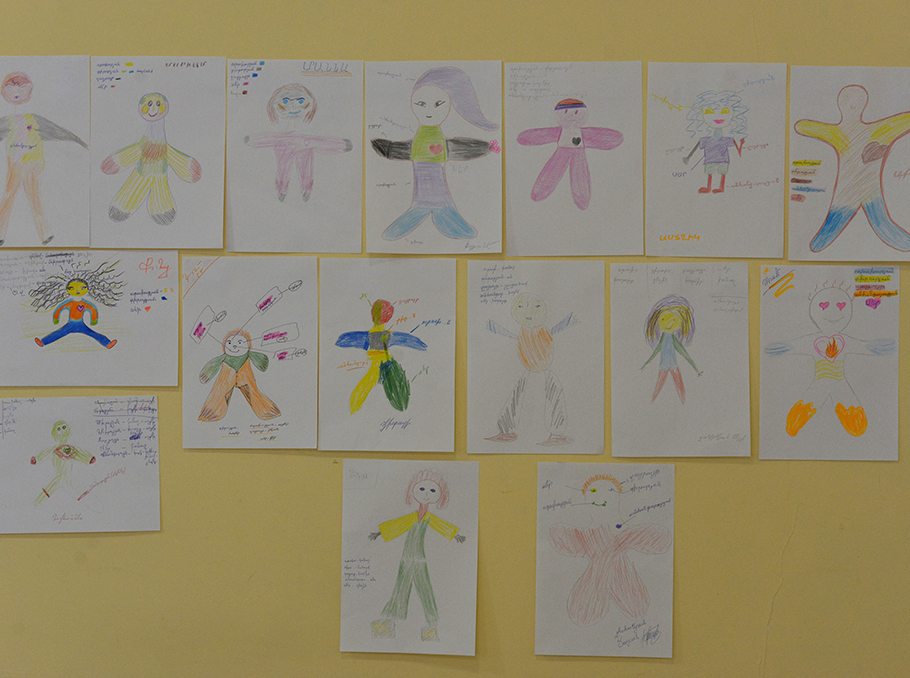
Photo: Vaghinak Ghazaryan/Mediamax
He does not have a rich pedagogical experience. He worked at a camp in Spain. In Syunik, he has set up a group called “Amenagitutyun”. During their meetings they discussed various topics with children: philosophy, geography, and historical monuments. He will teach English in a school come September.
“The course of the academy is very interesting to me. There are topics that I already have experience with, but I am just learning the theory. It is interesting to find that connection. You often face problems and, for weeks, you think about how to solve them, then you realize that 10 years ago people thought about the same thing and found solutions.”
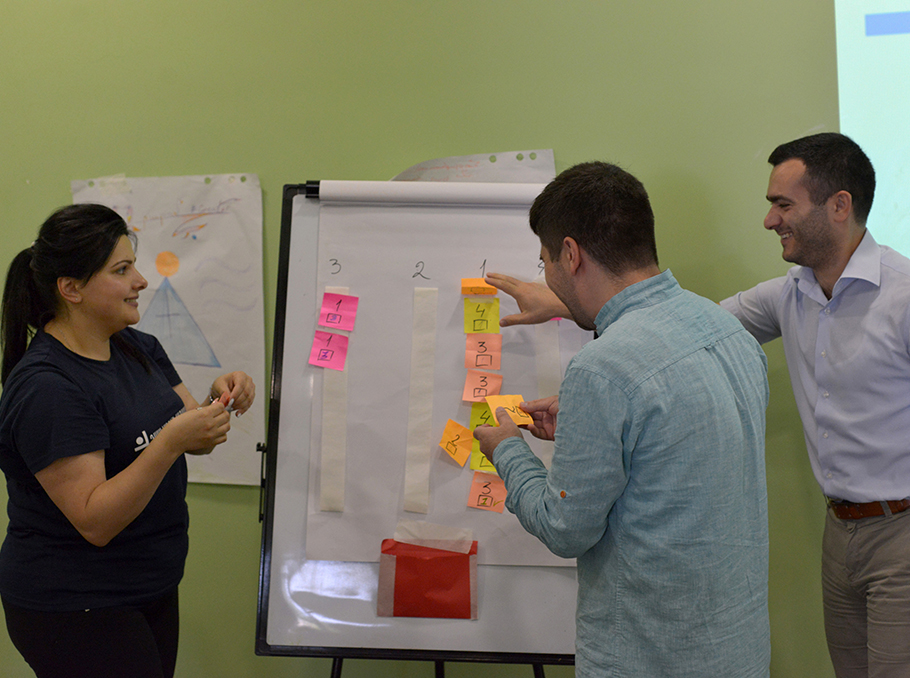
Photo: Vaghinak Ghazaryan/Mediamax
Michael is excited to have a chance to teach in a remote village starting in September. From his experiences over the previous two years he realized that people in the regions feel abandoned, children don’t have big hopes and dreams. Instead of discussing other people’s mistakes, he says, “We all should ask ourselves - What can I do?”
“The Diaspora has the wrong approach. We send money and feel good about it and then we put the blame on the people here. Armenia does not need money, but human resources. You can send money, but if we don’t have specialists, there is nothing we can do. All those people who continue to believe in Armenia should come and see what they can do here. We have another chance, and if we don’t want to wait for the next war, which can be much more catastrophic, we must prepare by working together.”
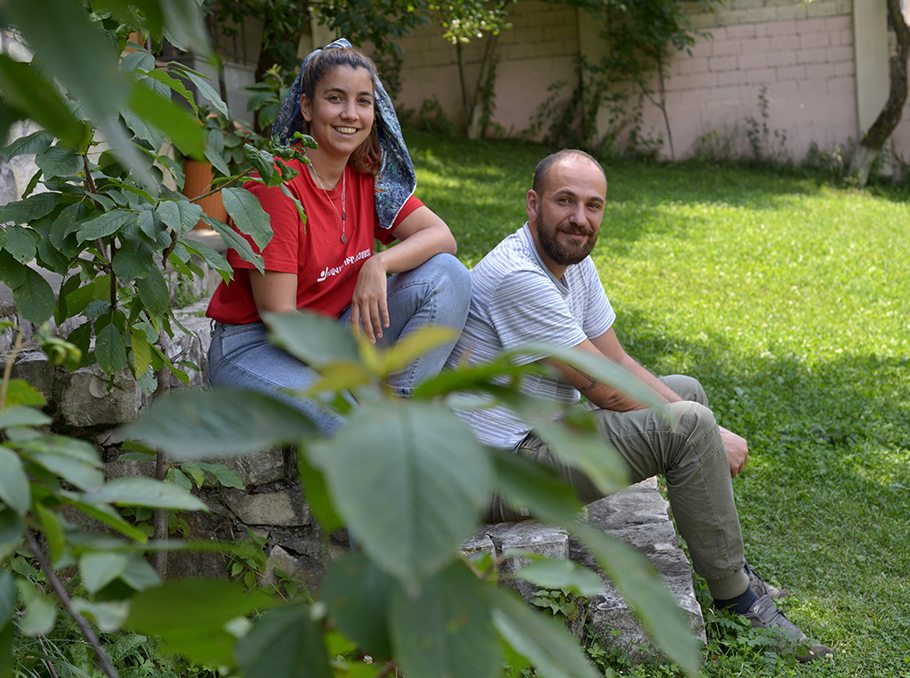 Michael and Paloma
Michael and PalomaPhoto: Vaghinak Ghazaryan/Mediamax
Paloma, from Spain, has been in Armenia for two years now. She decided to join the program because she realized that she is needed here. In addition to teaching English, she is learning Armenian, but in the Syunik dialect.
Seda Mkhitaryan: “We have to go deeper, where everything begins - school and education”
Seda Mkhitaryan is a journalist, but she could not decide what to do after graduating from university - work by profession or do something else. Just writing about issues was not enough.
“During the lessons we discussed various problems and always came to the conclusion that everything begins in school. The child was not taught that garbage should be thrown in the trash at school, and that’s why we have an ecological disaster today; the child was not taught to water the trees at school, that’s why he cuts down trees today. I realized that I had to go to the depths, where everything begins - school and education.”
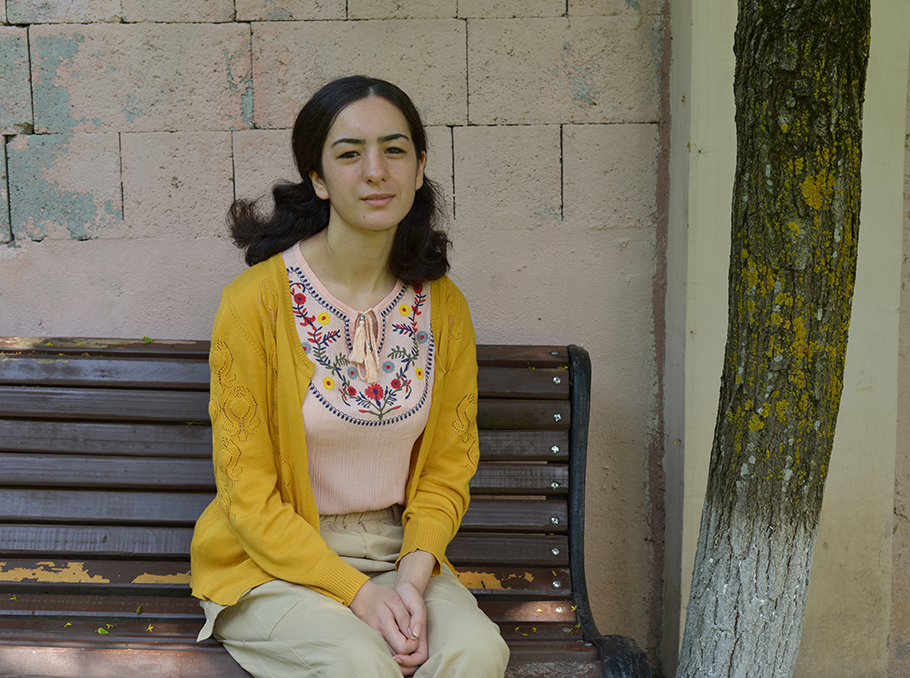 Seda Mkhitaryan
Seda MkhitaryanPhoto: Vaghinak Ghazaryan/Mediamax
Years ago, when Seda was still a student, a young English teacher was placed in her village, Karinj, through the Teach For Armenia program. Ani Harutyunyan lived at their house for two weeks. She says Ani played a big role in her decision to apply to Teach For Armenia. She already knew how important the work was, and there was no need to explain and convince the family: they have seen everything with their own eyes.
Seda says she was looking forward to the Teacher Leadership Academy. On the one hand, she was worried that she would not be able to master all the material, and, on the other, she wanted to enter school as prepared as possible.
“I thought there would be so many experienced teachers and they would better understand what to do, how to manage the classroom, and make a lesson plan. But on the third day, I realized the opposite. If you are a current teacher, you have a template that you have followed for 5 to 10 years, and it prevents you from perceiving and transforming the new one. And when you don’t have basic knowledge, like lesson planning, you master what is taught better.”
During the academy, Seda overcame another fear. Yesterday, she called her first student to discuss the details of the summer camp. It went really well and she realized that her worries were in vain.
Lusine Gharibyan
Photos by Vaghinak Ghazaryan (especially for Mediamax)









